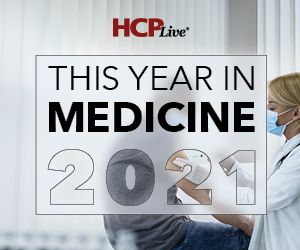Article
The Connected Clinician: Top Stories of the Week for August 28
Author(s):
Stay connected and up-to-date in health care news with the Connected Clinician top stories of the week for the week of August 28.
This week has been a busy one in the world of health care and medicine, with news in the world of infectious diseases spreading more wildly among certain groups compared to others, and a few FDA approvals worth keeping your eyes on, especially in the realm of neurology.
After combing through MD Magazine's multiple condition centers and specialties, stay connected with stories covering everything from the impact that HIV is having on the lesbian, gay, and bisexual patient population to the issuing of a recall on pacemakers due to fears of cyber security risks, and from the approval of only the second treatment for Tardive dyskinesia to an app that can track the effects of multiple sclerosis in real time.
Here are your Connected Clinician's top stories of the week:
Lesbian, Gay, Bisexual Adults Report Greater HIV Test Rates, Worse Health
Although lesbian, gay, and bisexual older adults are reported to take more preventive health measures in issues such as HIV testing, they are found to be in poorer health than heterosexuals, according to a recent study. Why are these patient groups struggling to maintain good health?
FDA Approves Deutetrabenazine for Tardive Dyskinesia
The drug was approved for treating chorea associated with Huntington Disease in April. The oral, small molecule vesicular monoamine 2 transporter inhibitor regulates dopamine levels in the brain. It is created by Israel-based company Teva Pharmaceutical Industries. It is only the second treatment approved for TD.
Real-time Multiple Sclerosis Tracking App Debuts
The app and study collection is available to both MS patients and non-patients, and participants have the right to leave the study anytime they would like. User privacy is ensured, as every participant’s data will be delivered under an anonymous, random code. Is this the future of doctor-patient relationships?
FDA Grants MDMA Breakthrough Therapy Designation for PTSD
In a phase 2 trial, MDMA reduced PTSD in 68% of patients after a 12-months period. Now that drug, known mainly for its street use and inclusion in the recreational drug ecstasy, has the nod from the FDA, what are the implications for the stigma of psychedelic-assisted therapy moving forward?
Abbott Issues Software Update Amid Risk of Pacemaker Hacking
The FDA reviewed the available information regarding the potential for cybersecurity vulnerabilities associated with the RF-enabled implantable cardiac pacemakers, confirming that, if exploited, they would allow for an unauthorized user to access the devices using commercially available equipment.
HIV Home-Test Kits Show Promise For Boosted Testing Numbers
A recent study in New Orleans showed that 86% of heterosexuals surveyed would use a mail order, home-based test kit, and the study found that not only would a high proportion of heterosexuals use a home-based test kit, but that 99% of the respondents said that they would seek treatment if they tested positive. Could home-based tests be the way of the future?





